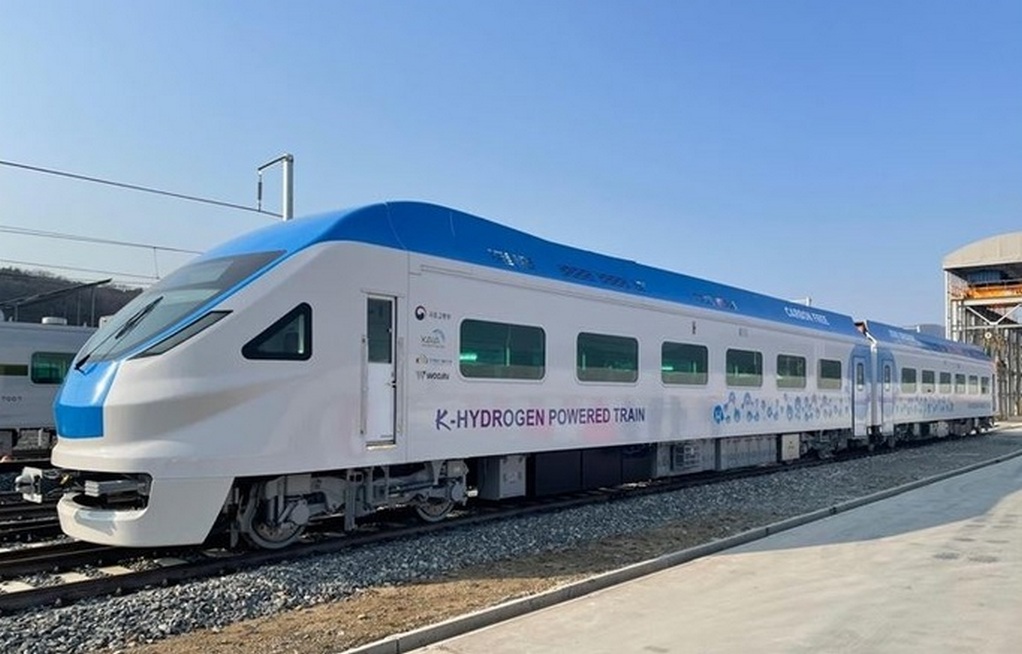West Japan Railway, known as JR West, plans to introduce biofuel in all its diesel trains, which operate mainly on local lines, by around 2030, a move that will reduce carbon dioxide emissions on nonelectrified sections, which account for nearly 40% of the company’s lines excluding bullet train lines.
The move comes as Japan’s railway companies, including East Japan Railway (JR East), accelerate the decarbonization of their operations. However, the cost of the new fuel, which is higher than that of diesel made from petroleum, will be a challenge for the company as the profitability of local lines deteriorates.
It is estimated that nonelectrified sections of Japan’s rail lines account for 30% of the total. According to the transport ministry, railroad operators in fiscal 2019 emitted a total of 9.93 million tons of CO2. Diesel railcars account for only 5% of this total, but they emit several times more CO2 per car than electric trains.
According to sources, JR West will conduct a test run of railcars using biofuels in fiscal 2023 between Shimonoseki Station and Nagatoshi Station in Yamaguchi prefecture to verify their fuel efficiency and performance. All diesel fuel will eventually be replaced by biofuel, which is produced from microorganisms and has a low environmental impact. The company will buy the biofuel from Tokyo-listed biofuel company Euglena and major trading houses.
Diesel cars account for 7% of JR West’s fleet and consumed 21,000 kiloliters of diesel in fiscal 2021. Starting in fiscal 2025, the company will begin switching to biofuel, aiming to reduce the amount of diesel used to zero by around 2030.
Because biofuel is made from plants that have absorbed CO2, the total amount of CO2 in the atmosphere does not rise when it is burned. In addition, biofuel can be used without major modifications to diesel engines, which helps keep costs down.
However, according to JR West, the current price of biofuel is several times higher than that of diesel, increasing operating costs.
Hirotaka Yamauchi, president for research at the Japan Transport and Tourism Research Institute in Tokyo, pointed out that there are discussions in the airline industry to have passengers bear the higher cost of biofuels. But for local trains, he said, “It is difficult to increase the burden on users of local lines. The government should subsidize and support the use of biofuels.”
As the Japanese government set a goal of achieving carbon neutrality by 2050, JR group companies which cover nearly all of the country, from urban centers to decaying rural areas, have been given the challenging task of reducing the environmental burden of operating local lines, many of which are losing money.
In Japan, JR East in 2022 began tests on a new vehicle called Hybari, which combines CO2 emissions-free hydrogen fuel cells with storage batteries. The company aims to commercialize the vehicle in 2030 and use it to replace diesel trains on nonelectrified sections of track.
Tags: East Japa Railway, Japan, JR West



Recent Posts
Hyundai Glovis to Retrofit Seven PCTCs with Avikus AI Navigation System
Super Terminais orders three more Konecranes Gottwald ESP.10 Mobile Harbor cranes
Covestro and HGK Shipping Extend Partnership to 2040 with Focus on Wind-Assisted Vessel Retrofit
Artemis Technologies Successfully Demonstrates 100 Percent Electric Crew Transfer Vessel at Aberdeen Offshore Wind Farm
IACS Council Advances Decarbonisation, Digitalisation and Governance Priorities at C91 Meeting in Beijing
Japan Launches Major R&D Project to Advance Shipbuilding with Alternative Fuels
EU Adopts Emissions Standards for Low Carbon Hydrogen to Bolster Clean Energy Market
Trafigura to Implement ZeroNorth’s AI Platform Across Global Fleet